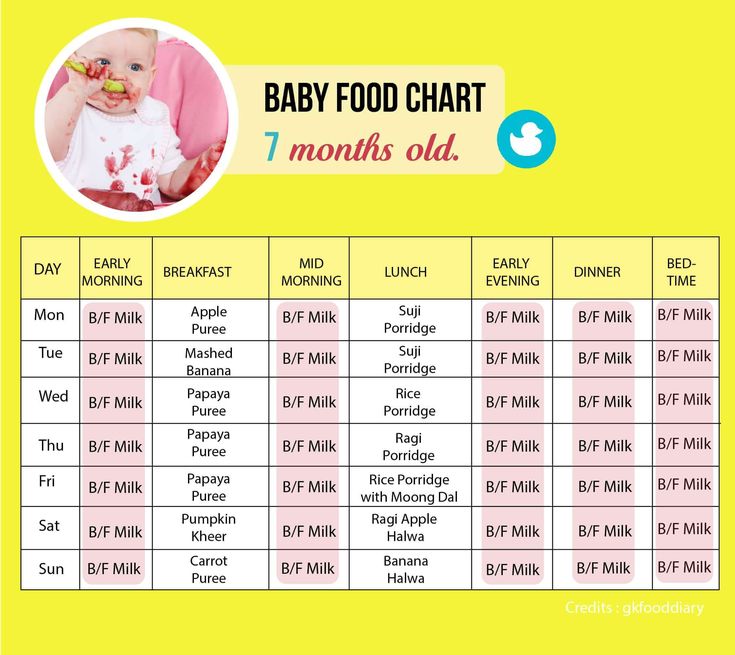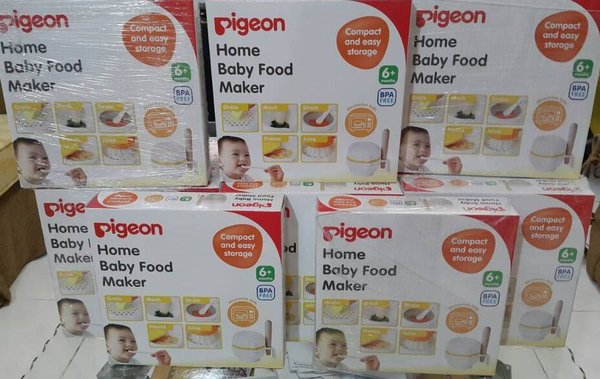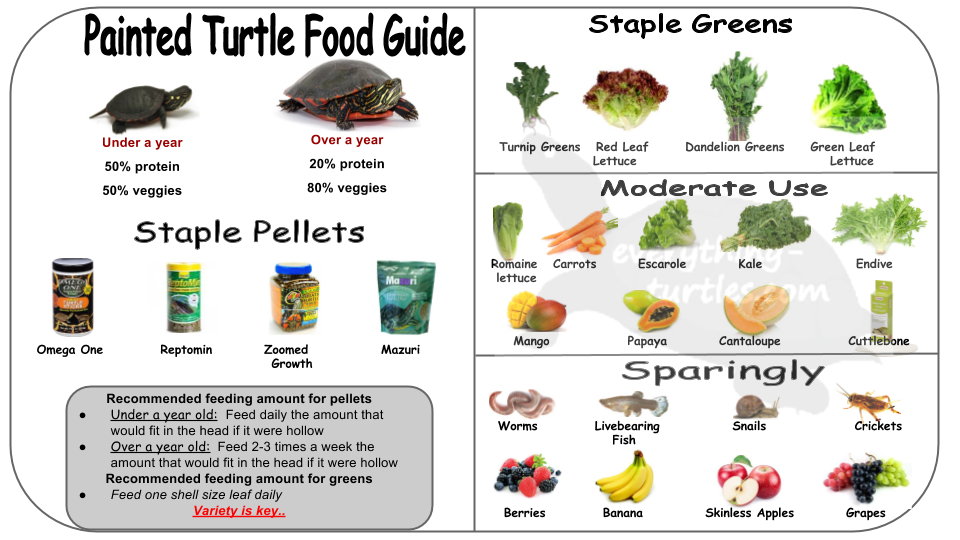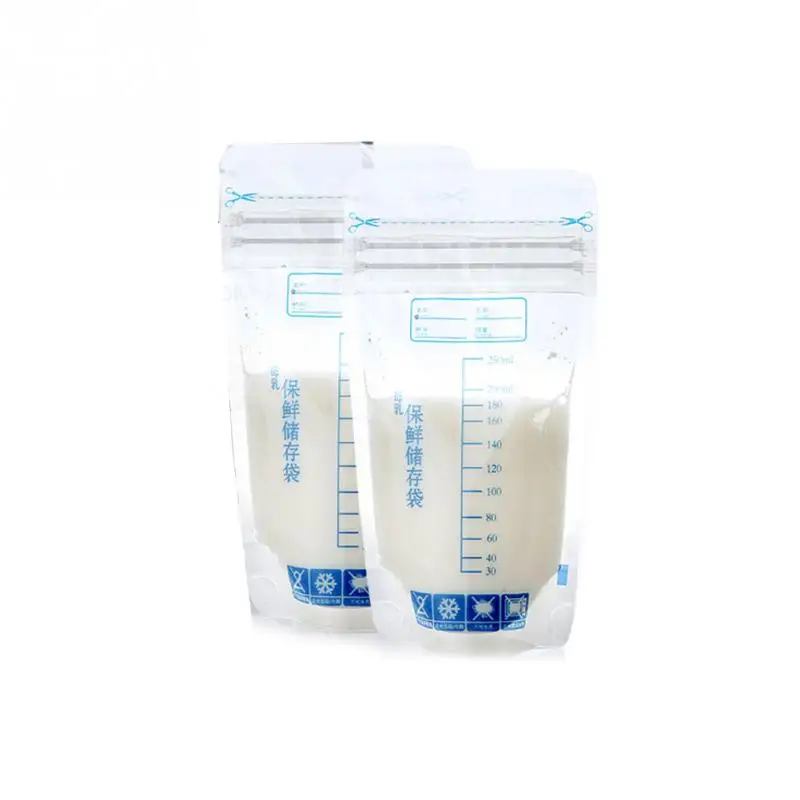Healthy food for 11 months old baby
Baby Food for 11-Month-Olds: Menus, Recipes, and Ideas
What are good baby foods for 11-month-olds?
It may seem like your baby was breastfeeding exclusively until very recently, but at 11 months old, your baby can eat many of the same foods that the rest of the family eats.
There are still some foods that they shouldn't have and certain preparation methods that you need to follow. Here are some of the things to avoid when planning a menu for an 11-month-old:
- Sugar — Your baby doesn't need to consume added sugar, and this ingredient can lead to tooth decay. Avoid giving your baby sugary snacks or drinks, and don't add extra sugar to their food. Instead, offer them a variety of fresh, non-citrus fruit.
- Salt — Added salt isn't good for your baby's kidneys. You don't need to add salt to their food. If you're cooking a family meal that your baby can eat, set a portion aside for the baby before you season it.
Avoid salty snacks such as salty crackers, chips, and deli meats.
- Honey — Honey is delicious, but it can contain bacteria that cause botulism. Avoid giving your baby honey until their first birthday.
- Unpasteurized dairy products — Babies can eat pasteurized cheese when they're six months old, but unpasteurized cheeses can be harmful. Cheeses made with unpasteurized milk or mold-ripened cheeses, such as roquefort and brie, can contain a bacteria called listeria. Instead, offer your baby cheddar cheese, cottage cheese, and cream cheese.
- Cow's milk — Dairy products, such as yogurt or pasteurized cheeses, are a great addition to your 11-month-old baby's food list. However, they shouldn't drink cow's milk until they're at least one year old. Instead, give them formula, breastfeed them, or provide breast milk that was stored previously.
- Saturated fats — Avoid fried foods, processed meats, butter, baked desserts, cream, and mayonnaise.

- Highly processed foods — Your baby doesn't need to consume the additives, artificial colors, and flavorings that come in lots of processed foods such as candy, breakfast cereals, microwave meals, ice cream, and chips. These foods should be an occasional snack rather than a dietary staple.
- Whole nuts — Nuts and seeds can pose a choking hazard for your 11-month-old baby. Instead, you can offer them nut butter.
- Uncooked eggs — Make sure any eggs your baby eats are fully cooked to avoid possible salmonella infections. Avoid foods that contain raw eggs, such as cake batter or homemade mayonnaise.
- Raw fish or seafood — These foods carry an increased risk of food poisoning. Stick to fully cooked fish until your baby is at least one year old.
Take a quiz
Find out what you can do with our Health Assistant
How much food does an 11-month-old need?
It might be messy at first, but allowing babies to eat on their own can help them develop their fine motor skills, independence, coordination, and body and food awareness.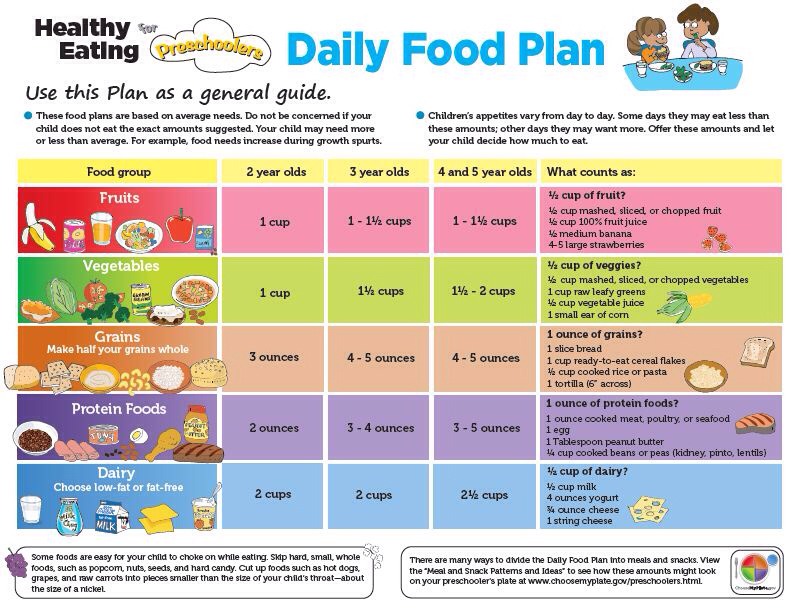 Don't force your baby to eat. Forcing babies to finish every meal can cause them to negatively impact their relationship with food. Make sure that you cut your baby's food into small pieces, and allow them to feed themselves while keeping a close eye on them.
Don't force your baby to eat. Forcing babies to finish every meal can cause them to negatively impact their relationship with food. Make sure that you cut your baby's food into small pieces, and allow them to feed themselves while keeping a close eye on them.
Here's a quick guide to the portion sizes that your 11-month-old baby needs each day:
- Protein: Up to 4 tablespoons
- Vegetables: Up to half a cup
- Fruits: Up to half a cup
- Cereals: Up to half a cup
- Dairy: Up to 3 tablespoons
- Breast milk or formula: 22 to 32 oz
If your child has already stopped breastfeeding, make sure they're still drinking formula or stored breast milk every day. You can also follow these tips to increase your breast milk if your supply has gotten too low. Breast milk or formula can provide up to half of your child's nutritional requirements until they're a year old. It's very likely that they'll want to breastfeed less frequently once solid foods are introduced; therefore, breastfeeding should be actively encouraged at this age.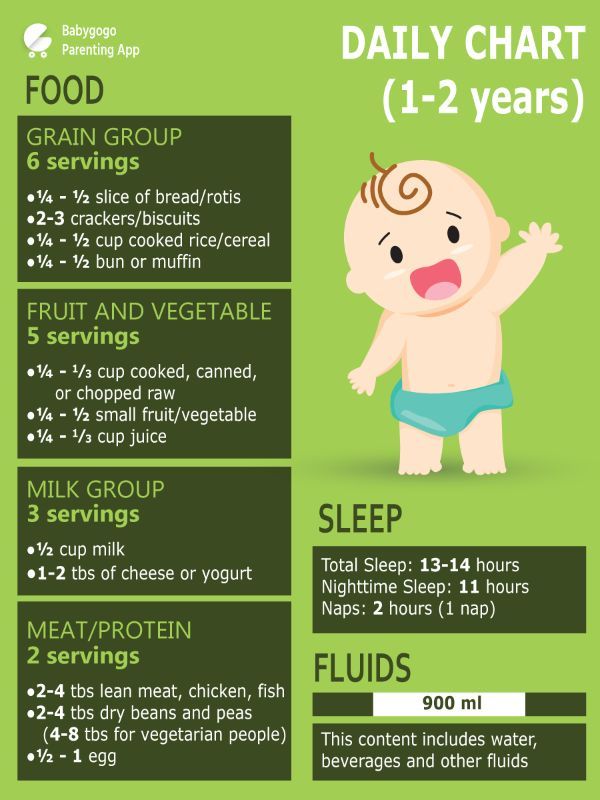
Menu for 11-month-old babies
Here are some meal ideas for your 11-month-old baby:
Breakfast:
- Eggs and toast
- Blueberry whole-wheat pancakes
- Cheese sandwich
Lunch:
- Chicken and vegetables
- Macaroni and cheese
- Homemade lasagna
Dinner:
- Creamy chicken and vegetable soup
- Lean steak and vegetables
- Cereal with fruit
Snacks:
- Fruits and peanut butter
- Yogurt with cereal or fruit
- Boiled eggs
Food ideas for 11-month-old babies
Here are some ideas to help you come up with new recipes for your 11-month-old baby:
- Try new ways to cook your baby's vegetables. Rather than sticking to the usual ways you cook your vegetables, try grilling or sauteing them so that your baby experiences new textures and flavors.
- Create homemade versions of your favorite foods.
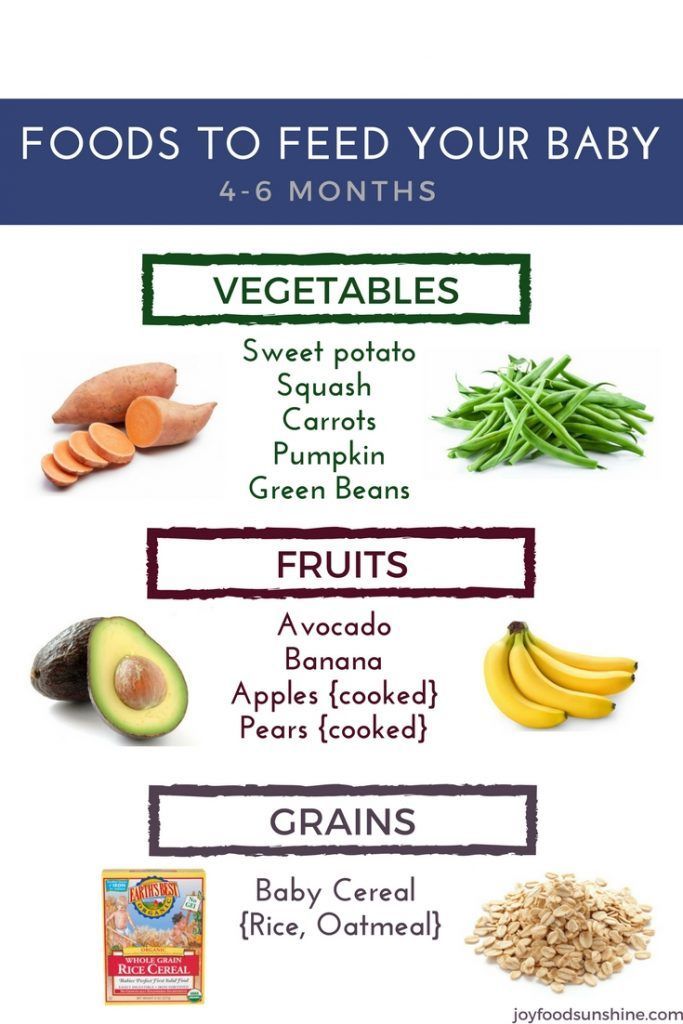 Your baby shouldn't be eating frozen lasagna or pizza, but you can cook healthier, homemade versions of your favorite meals so that they can try them.
Your baby shouldn't be eating frozen lasagna or pizza, but you can cook healthier, homemade versions of your favorite meals so that they can try them. - Only introduce one new food every couple of days. If you introduce too many new foods at once, and one of them causes an allergy, it will be hard to determine which one it was. Instead, introduce one food at a time and wait a few days before trying something else.
Recipes for 11-month-old babies
- Vegetable and chicken soup — Boil broccoli, potatoes, and a chicken breast. Then, blend the solid ingredients together and add some of the stock. This soup will have a creamy consistency, and you can even add some cheese on top.
- Homemade frozen smoothies — Freeze ripe bananas. Once they're frozen, blend them until they're smooth. You can add other fruits such as strawberries and blueberries. Keep it in the freezer for a healthy, cool snack.
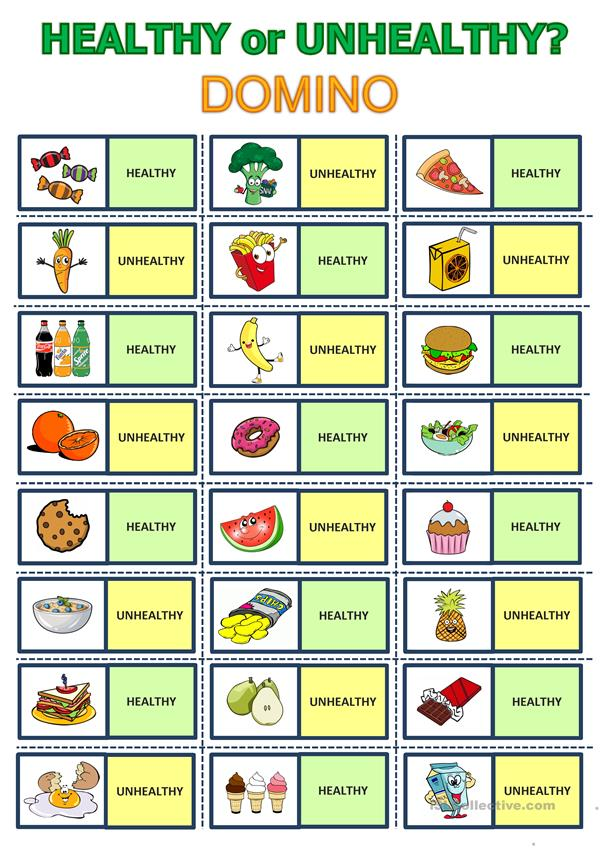
- Homemade pizza — Use pita bread for the crust and puree some peeled tomatoes to make the sauce. Top with mozzarella cheese and fresh basil before placing it in the oven.
Food for your 11-month-old baby is very similar to food for the rest of the family. At this age, they'll be able to eat on their own and discover many wonderful new flavors, textures, and sensations. They'll be eating a piece of their own birthday cake very soon!
11 Months Old Baby Food Chart Along with Homemade Recipes
By the time your baby is 11 months old, he is likely to be able to eat on his own. You can give your baby the same food as the rest of the family after mashing it or cutting it into small pieces to help him chew and digest it better. Be sure to watch over your child during meal and snack times to make sure he does not choke on any food.
Video: Food Ideas for 11-month-old Babies
How Much Can a Baby Eat at This Stage?
By the time they are 11 months old, most babies can eat a wide range of items like fruits, vegetables, and meat. Three meals and a snack alongside formula or breast milk are what an average 11-month-old baby needs each day. The meal and snack timings will depend on your baby’s daily routine as well as yours.
Also Read: 11 Months Old Baby Milestones
How Much Quantity Per Day?
Your baby’s appetite will vary depending on his level of activity and his growth spurt to a large extent. The following is an approximate estimation of the quantity of food your baby needs each day:
- Up to half a cup of cereal
- Up to half a cup of vegetables
- Up to half a cup of fruits
- Up to 3 tbsp of dairy
- Up to half a cup of mixed cereals
- Up to 4 tbsp of meat or other proteins
How to Check If Your Baby Is Getting Enough Breast Milk or Formula
While feeding your baby, a few concerns are bound to creep up every now and then.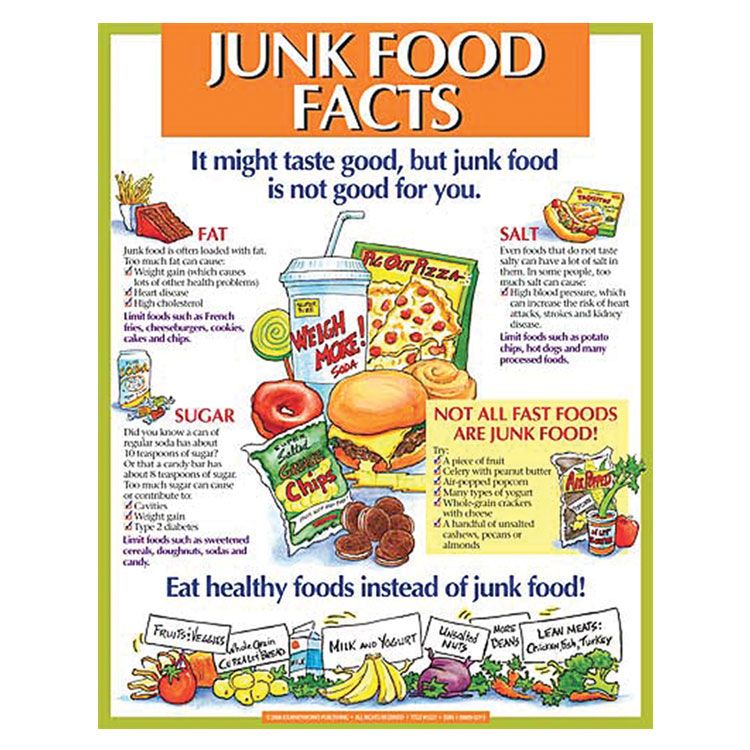 You might wonder if your child is getting enough milk or formula every day – here are some ways in which you can assess this:
You might wonder if your child is getting enough milk or formula every day – here are some ways in which you can assess this:
Breastfed Baby:
- If your baby appears content after every feed, it is an indication that he is getting enough milk.
- When you experience a let-down, it is an indication that breastmilk is being replenished on a regular basis.
- Check your baby’s urine and see if it is clear and odourless. That is a sign of a well-fed baby.
- Your baby has regular bowel movements.
Formula-fed Baby:
- Convert your baby’s weight into pounds and multiply it by 2 and 2.5 to get two values that will be considered as lower and upper ranges for the amount of formula your baby needs each day.
- As your baby approaches his first birthday, the formula feed is likely to decline to just one big feed per day.
- See if your baby wets a minimum of six diapers in a 24-hour period.
Best Foods for Your Eleven-month-old Baby
It is important to cultivate healthy eating habits in your baby right from an early age.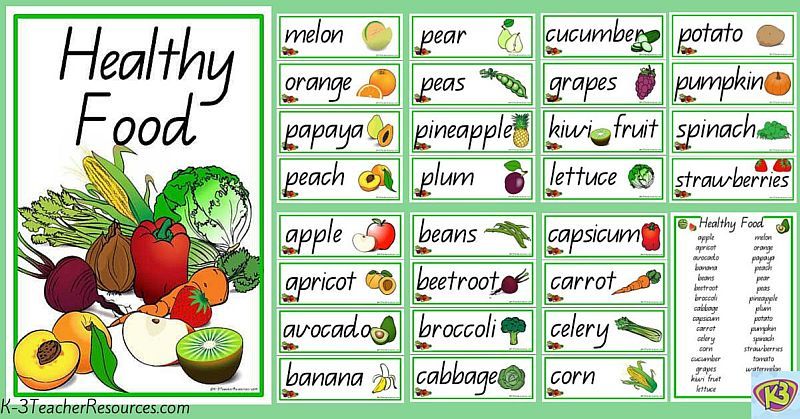 So, keep a watch for any possible allergies and introduce your child to all kinds of foods.
So, keep a watch for any possible allergies and introduce your child to all kinds of foods.
1. Fruits
A great source of vitamins and minerals, fruits should be an integral part of your baby’s daily diet. From apples to oranges to bananas and pears, let your baby try everything.
2. Poultry and Fish
Packed with proteins, fish and chicken can be extremely helpful in your child’s brain development and growth.
3. Cheese
Different types of cheese like cottage, cheddar, ricotta, and goat cheese can enhance the taste of your baby’s meals while satisfying daily protein requirements.
4. Pulses and Grains
Everything under this category can be offered to your 11-month-old baby. Switch between grains and pulses to give your baby some variety during mealtimes.
5. Dairy Products
Dairy items like yoghurt and curd are good for infants. Refrain from feeding your baby cow’s milk – that can be given only after the age of 1 year.
6.
 Leafy Greens
Leafy GreensLeafy vegetables, especially greens such as spinach and fenugreek are particularly beneficial to babies as they contain iron.
7. Vegetables
All kinds of vegetables are good for your baby. Make it a point to use three different vegetables – one at every meal – every day.
8. Eggs
Eggs, especially the yolk is good for babies at this age. It is also easy for them to eat and digest.
Video: Diet Plan for 11 Month Old Baby
11-month-old Baby Food Chart/Meal Plan
Here is a sample meal plan for an 11-month-old baby:
Diet for a 11 Month-Old – Week 1, Day 1
Diet for a 11 Month-Old – Week 1, Day 2
Diet for a 11 Month-Old – Week 1, Day 3
Diet for a 11 Month-Old – Week 1, Day 4
| Early morning | Mother’s milk /formula feed |
| Breakfast | |
| Mid-morning | Mashed papaya |
| Lunch | Curd rice |
| Evening | Mother’s milk /formula feed |
| Dinner | Bajra (pearl millet)- moong dal (green gram split) khichdi |
Diet for a 11 Month-Old – Week 1, Day 5
Diet for a 11 Month-Old – Week 1, Day 6
Diet for a 11 Month-Old – Week 1, Day 7
Diet for a 11 Month-Old – Week 2, Day 1
| Early morning | Mother’s milk /formula feed |
| Breakfast | |
| Mid-morning | Mashed chikoo (sapota) or mashed banana |
| Lunch | Roti dipped in dal |
| Evening | Mother’s milk /formula feed |
| Dinner |
Diet for a 11 Month-Old – Week 2, Day 2
Diet for a 11 Month-Old – Week 2, Day 3
Diet for a 11 Month-Old – Week 2, Day 4
Diet for a 11 Month-Old – Week 2, Day 5
Diet for a 11 Month-Old – Week 2, Day 6
Diet for a 11 Month-Old – Week 2, Day 7
Diet for a 11 Month-Old – Week 3, Day 1
Diet for a 11 Month-Old – Week 3, Day 2
Diet for a 11 Month-Old – Week 3, Day 3
Diet for a 11 Month-Old – Week 3, Day 4
Diet for a 11 Month-Old – Week 3, Day 5
Diet for a 11 Month-Old – Week 3, Day 6
Diet for a 11 Month-Old – Week 3, Day 7
Diet for a 11 Month-Old – Week 4, Day 1
Diet for a 11 Month-Old – Week 4, Day 2
Diet for a 11 Month-Old – Week 4, Day 3
Diet for a 11 Month-Old – Week 4, Day 4
Diet for a 11 Month-Old – Week 4, Day 5
Diet for a 11 Month-Old – Week 4, Day 6
Diet for a 11 Month-Old – Week 4, Day 7
Video: 11-month-old Baby Food Recipes
Homemade Baby Food Recipes
1. Semolina (
Suji) HalwaIngredients
- ½ cup semolina (suji)
- 1 cup of water
- ½ tsp powdered cashews/almonds (optional)
- ½ tsp ghee
- 1 date, pureed
How to Prepare
Warm the ghee in a pan and then roast the semolina in it. Keep stirring to avoid burning. When the semolina turns aromatic, add the water and date puree. Stir to prevent lumps, and if you are using the powdered dry fruits, you can add them in at this point. When the semolina appears cooked, turn off the heat. Keep the consistency of the halwa a little thin as it will thicken further while cooling.
2. Spinach and Cottage Cheese (
Paneer) PastaIngredients
- 1 cup pasta (penne or macaroni)
- 1 bunch spinach
- 1 cup grated cottage cheese (paneer)
- Water as required
- Salt if required
How to Prepare
First, cook the pasta and ensure it is soft enough for your baby to eat easily. You can also mash it lightly if you want. Wash the spinach well and boil it for a while. Add the cottage cheese to it and cook for a few minutes till the raw smell and taste disappear. Cool this mixture and grind it to a smooth paste with a little water. You can also add in a little salt if required. Mix this with the pasta and serve it to your baby.
You can also mash it lightly if you want. Wash the spinach well and boil it for a while. Add the cottage cheese to it and cook for a few minutes till the raw smell and taste disappear. Cool this mixture and grind it to a smooth paste with a little water. You can also add in a little salt if required. Mix this with the pasta and serve it to your baby.
3. Creamy Carrot and Sweet Corn Rice
Ingredients
- ¼ cup chopped onion
- ½ cup boiled sweet corn
- ¼ cup carrot peeled and chopped
- ½ cup of rice
- 1 tbsp butter
- A bay leaf
- A pinch of pepper powder
- Water as required
How to Prepare
Heat the butter in a pan and sauté the onions in it until translucent. Add the cooked and boiled corn to this. Next, add the chopped carrots and pepper. Saute for a while and turn off the heat. You can cool this and roughly or smoothly grind the mixture depending on your child’s preferences.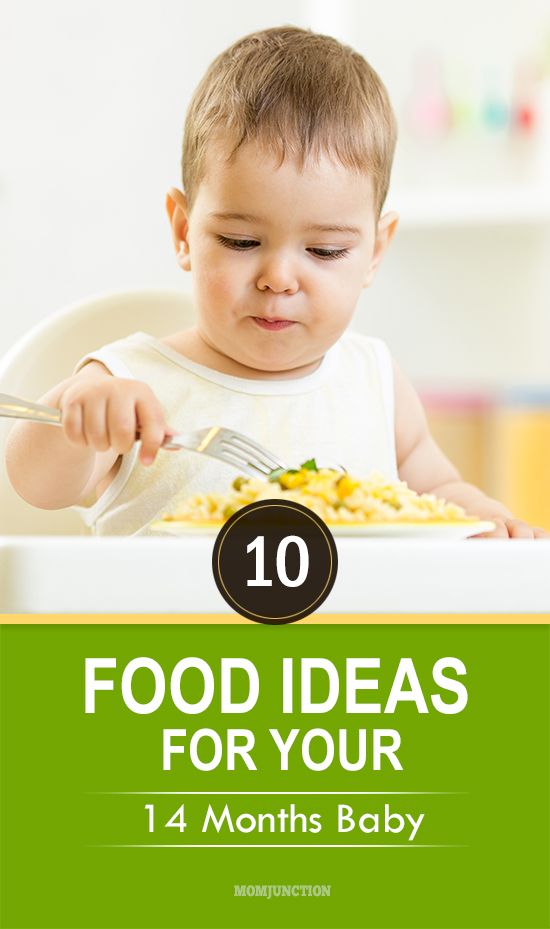 Boil water to cook the rice and add the bay leaf. Cook the rice till it is soft enough for your baby to eat. Stir in the mixture and remove the bay leaf. Serve it warm to your baby.
Boil water to cook the rice and add the bay leaf. Cook the rice till it is soft enough for your baby to eat. Stir in the mixture and remove the bay leaf. Serve it warm to your baby.
4. Apple Chicken Nuggets
Ingredients
- 1 egg yolk
- 1 apple- peeled and grated
- 1 clove of garlic
- 1 cup chicken minced or ground finely
- A pinch of pepper
- A pinch of thyme, finely powdered
- Some oil to grill/fry
How to Prepare
Mix the listed ingredients except for the egg yolk. Then shape the mixture into small nuggets. Beat the egg yolk well and brush it on the nuggets – you can also dip the nuggets in the beaten egg yolk. Shallow fry or grill the nuggets till the chicken is cooked well. Using olive oil can make the nuggets more crispy and flavorful.
5. Kidney Bean (
Rajma) SoupIngredients
- 1 small onion, chopped finely
- ½ cup kidney beans (rajma) soaked overnight
- 2 cloves of garlic, finely chopped
- 1 small tomato- finely chopped
- 2 tsp lemon juice
- 1 tsp butter
- A pinch of black pepper powder
- Salt if required
- Water as required
How to Prepare
Place a pressure cooker on heat and melt the butter.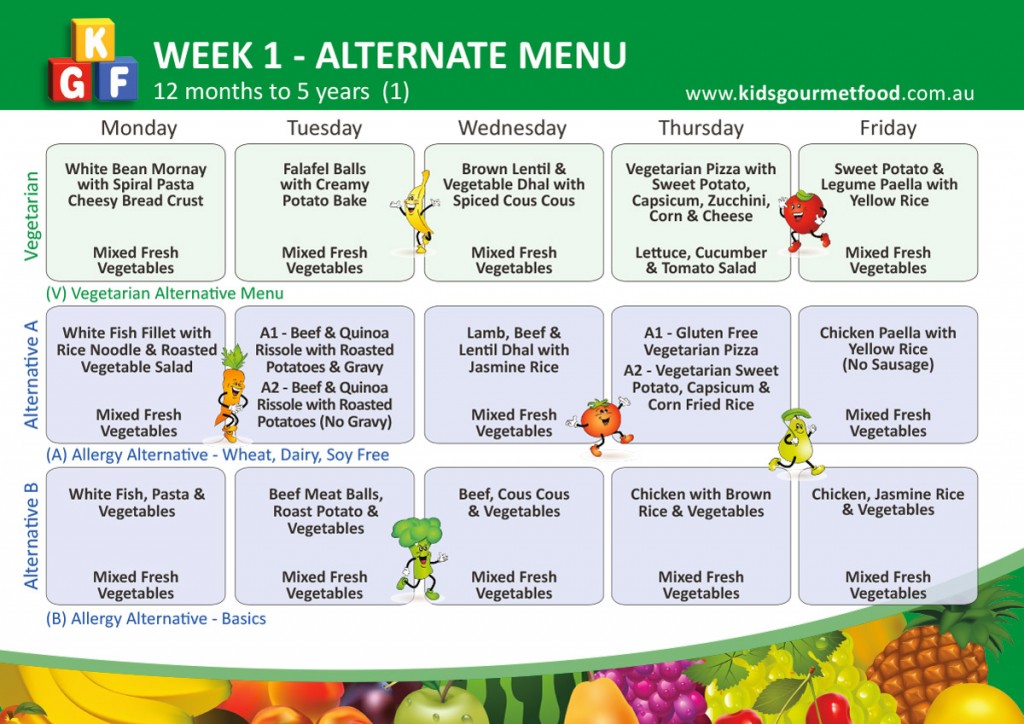 Add the chopped garlic and sauté it for about a minute. Then put in the onions and stir fry till they become soft. Then add the chopped tomato and sauté till it becomes pulpy. Add the soaked kidney beans to this and sauté for a few minutes. Pour in two cups of water and cook the beans well in the cooker till they are soft enough to mash. Blend the mixture to a soup consistency and boil it. Add the lemon juice and pepper along with some salt if you want. Serve in a bowl.
Add the chopped garlic and sauté it for about a minute. Then put in the onions and stir fry till they become soft. Then add the chopped tomato and sauté till it becomes pulpy. Add the soaked kidney beans to this and sauté for a few minutes. Pour in two cups of water and cook the beans well in the cooker till they are soft enough to mash. Blend the mixture to a soup consistency and boil it. Add the lemon juice and pepper along with some salt if you want. Serve in a bowl.
Feeding Tips to Feed Your Eleven-month-old Baby
Compiling an 11-month-old baby food list and using it as a reference can simplify things for you.
- Sterilise utensils like spoons, plates, bowls and glasses that you will use to feed your baby. You can immerse these in hot water for a few minutes and take them out when you are ready to serve the food.
- Every time you introduce a new healthy food, be sure to keep an eye out for any signs of allergies. Also, be sure to give a gap of at least three to five days before introducing the next new food and only introduce one food at a time.
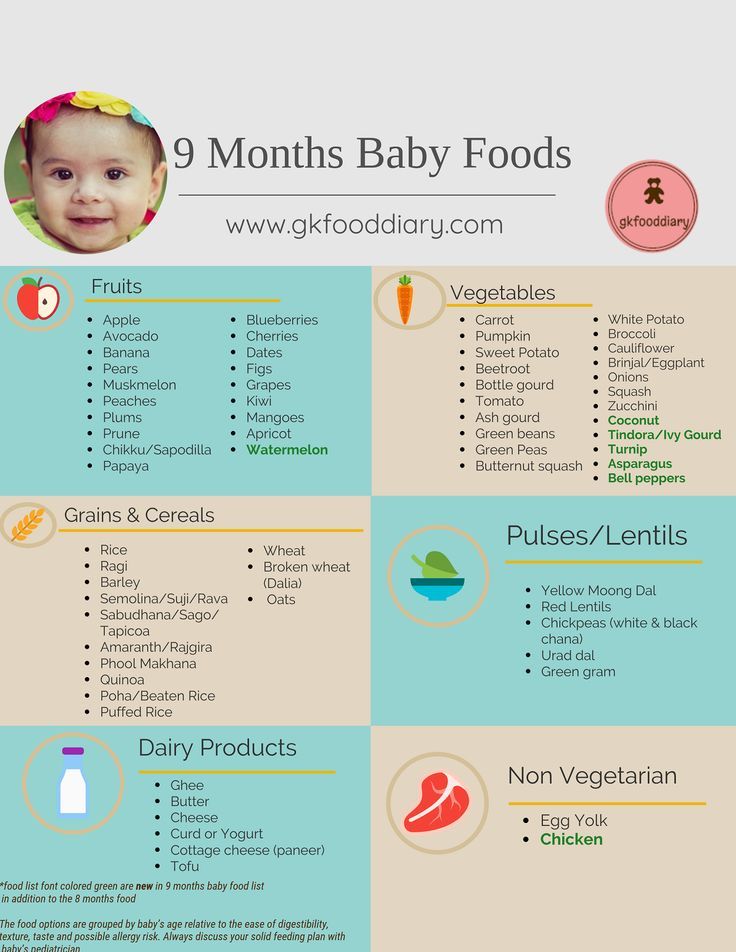
- Try to avoid sugar and salt in your baby’s food at least until the first birthday. Cow’s milk and honey are also not advised unless your baby turns one.
- Be sure to supplement your baby’s solid feeds with breast milk or formula based on your child’s demands.
- Check with your paediatrician if you have any concerns about your child’s feeding habits.
Your baby is growing up fast and starting to explore the world around him. So, this is the right time to introduce your baby to new foods one at a time and gradually get him to eat what the family eats. Just ensure that the food you offer your child is as healthy and home-cooked.
Disclaimer:
- Each child is different and so use these meal plans as a trusted guide as per your discretion. You can modify the meals according to your child’s preferences / requirements.
- Never force-feed a child.
- While preparing formula, please follow the instructions on the box and use the measuring spoon provided with it.
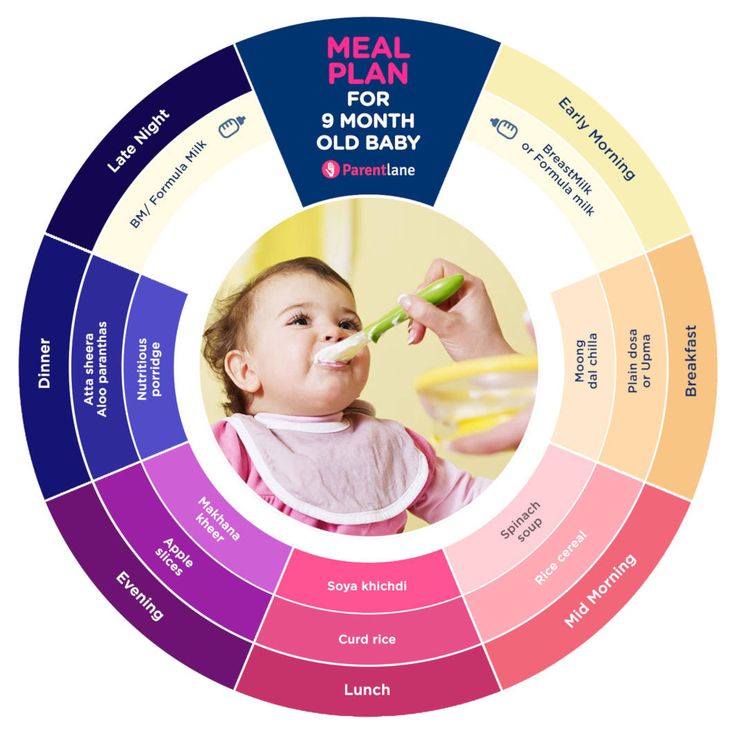
- While introducing solid food to a baby, initially, one needs to prepare watery gruels/soups. As a child gets older, the caretaker/ mother has to increase the thickness of the liquids slowly according to the child’s capacity to swallow. Foods that are too thick can cause stomach upset/ unnecessary load; while excessively watery food might cause the child to remain hungry.
- Some kids may eat less on some days and that is absolutely alright. However, if a child eats less for more than 3-4 consecutive days, please visit a doctor to guide further.
- A child may eat less during the teething phase or if he/she may not be feeling well. You could increase breast milk /formula feeds on those days. Re-introduce the foods once the child is back to normal.
- Don’t stop feeding if the child is suffering from diarrhoea.
- You can alter the taste of the food by adding some natural flavours like cinnamon, jeera powder, lemon juice, curry leaves etc. if the child doesn’t accept the food initially.
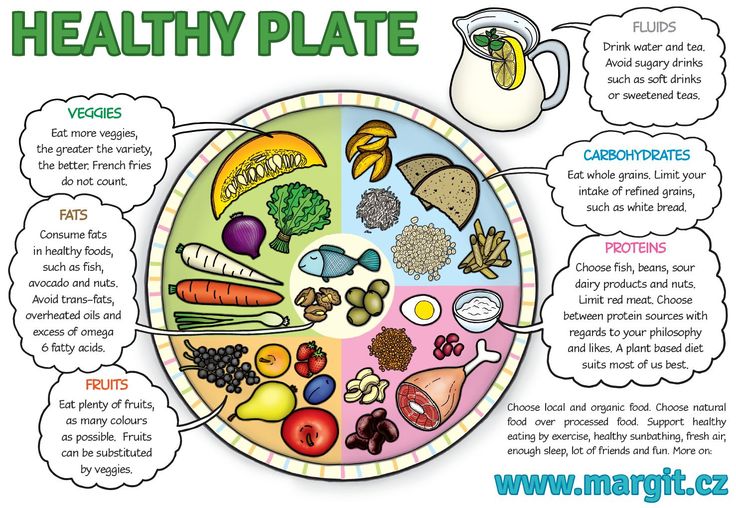
- If your child suffers from an allergy to nuts, gluten or eggs, please consult your doctor before feeding him/her any foods that may contain them.
Also Read:
Healthy Egg Recipes For Babies & Kids
10 Simple & Healthy Rice Recipes For Kids
11 month old baby menu: approximate diet
Lyubov Troshina
Daily Baby author, mother of two girls
#nutrition #lure
The time for one-component purees is over. Now mom is free to experiment: there are a lot of products on the list of allowed products that can now be mixed, besides, the baby is already used to a denser consistency of dishes. So, what to feed a baby at 11 months?
What to feed
The daily menu of an 11-month-old baby ideally includes products from all major groups of the food pyramid. Namely:
- Cereals . The baby can already have buckwheat, rice, corn, oatmeal, wheat and millet porridge. The approximate daily allowance for an eleven-month-old baby is 200 grams.
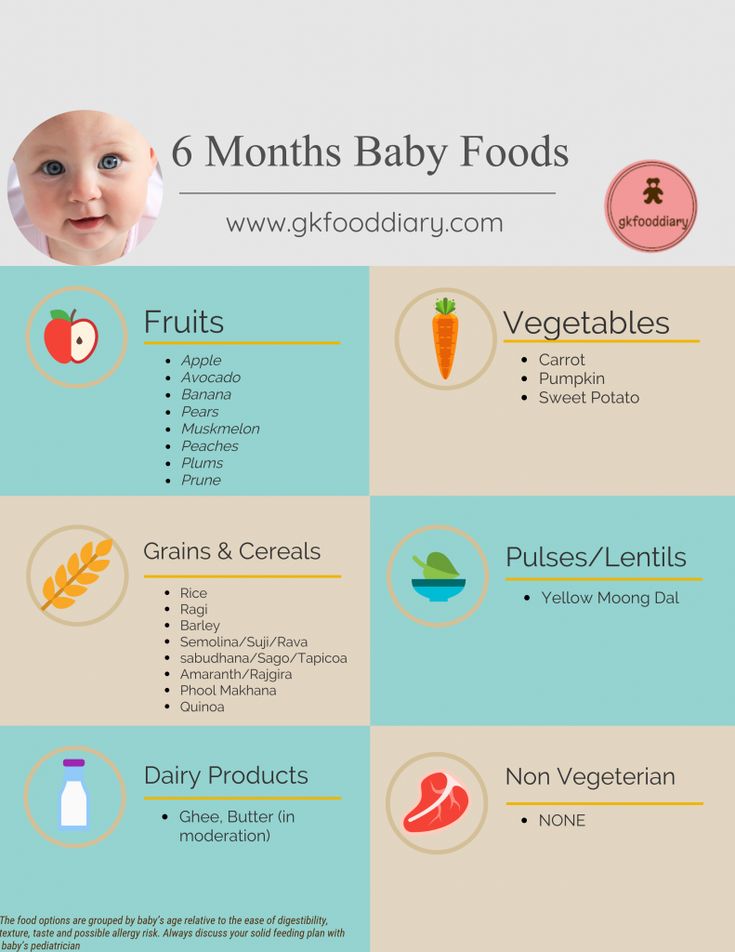
- Vegetables . Zucchini, broccoli, cauliflower and white cabbage, carrots, pumpkin, potatoes, beets, tomatoes, onions. A child can eat about 150 grams of vegetable dishes per day. nine0018
- Meat and fish . For a baby, it is better to cook rabbit, turkey, chicken and beef. The norm per day is 40-50 grams of meat puree from a boiled product or 80-100 grams of meat “in a jar”. As a meat portion, you can sometimes give dishes from offal: tongue, liver or heart. A couple of times a week it’s good to arrange a “fish day”. A serving of fish now can be 30-60 grams. Among those allowed for baby food: sea - flounder, cod and pollock; river - hake, carp and river perch. nine0018
- Dairy products . At this age, the child is advised to give no more than 50 grams of cottage cheese. Fermented milk drink - kefir, biokefir, biolact, yogurt - about 200 grams.
- Fruit . Among the most friendly to the baby's digestive system are apples, pears, bananas, peaches, apricots, plums, currants (white, black and red).
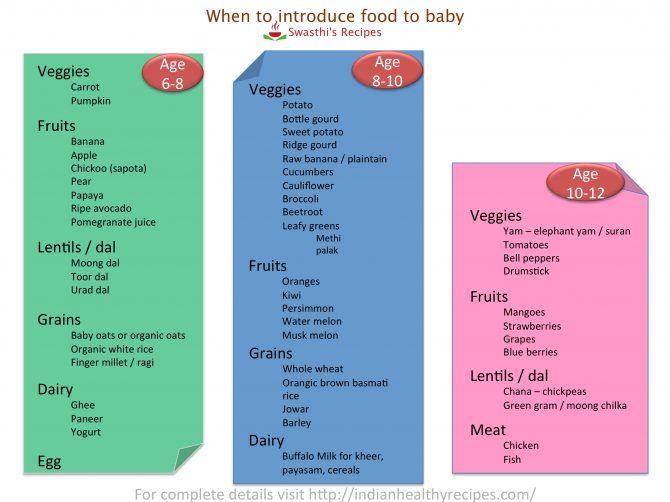 The norm of fruit puree is about 90-100 grams.
The norm of fruit puree is about 90-100 grams. - Egg . A couple of times a week it is useful to give the baby half a chicken yolk, or a whole quail. Eggs for this should be boiled "hard boiled". A short heat treatment with the “soft-boiled” or “pouched” options does not destroy salmonellosis pathogens. nine0018
- Oil . Vegetable oil goes well with vegetable dishes. The daily norm for a baby at 11 months is 6 grams. Creamy makes porridge tastier, 5 grams is enough for a child a day.
- Cookies . An eleven-month-old baby can be pampered with special baby biscuits. But you should not get carried away - two things a day are enough.
When to feed
It is not always possible to follow a strict regime with babies, but it is worth trying. Children who eat at regular intervals—with a maximum margin of error of 30 minutes—have better appetites and fewer digestion problems. nine0003
At 11 months, it is advised to feed the baby five times a day, keeping four hours between meals.
Immediately after sleep and at night, the baby still receives breast milk or an adapted milk formula.
A classic breakfast is porridge, cottage cheese, sometimes egg yolk.
Lunch is usually served with vegetables and meat (fish or offal). But the meat portion also goes well with a cereal side dish. Then vegetables can be given for breakfast or dinner. nine0003
Fruit puree and any fermented milk drink are also suitable for dinner.
What to drink
Plain water is what a child needs to maintain water balance. You can buy bottled baby water or use boiled tap water. In second place are compotes from berries, fruits or vegetables familiar to the baby. Preferably without sugar.
Fruits and berries that are familiar to babies can also be used to make sparse jelly. The drink improves digestion, but since it is very high in calories, it is better not to give it to overweight children. nine0003
You should not get carried away with juices, although according to the norms they are allowed to drink 60-80 ml every day.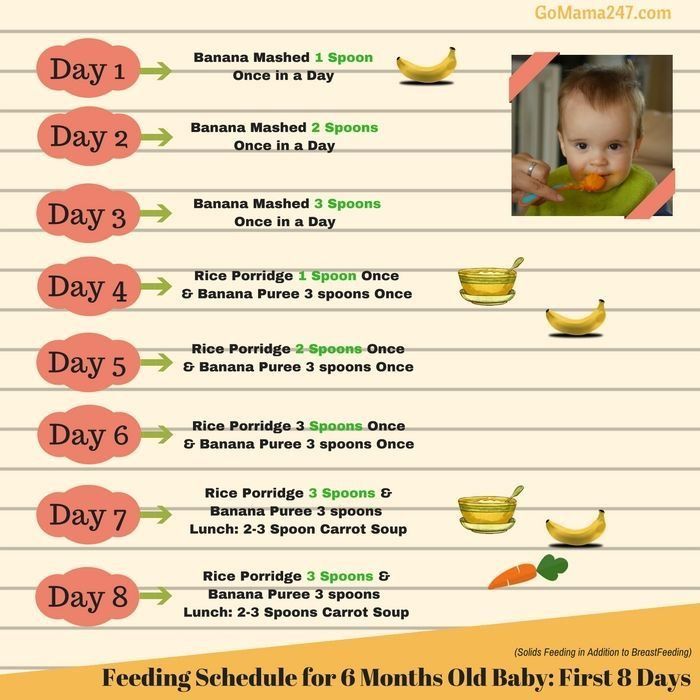 They contain a lot of sugar and this is a disaster for delicate milk teeth. And the juices are rich in organic acids, which irritate the mucous membranes of the gastrointestinal tract.
They contain a lot of sugar and this is a disaster for delicate milk teeth. And the juices are rich in organic acids, which irritate the mucous membranes of the gastrointestinal tract.
What not to feed
There are foods on which, in the imagination of parents, there should be a “sign of an outcast”. They are absolutely not allowed in complementary foods. These are any canned foods, pickled vegetables and fruits, smoked meats. nine0003
Sausages, wieners and other sausage products should not be given to a child at least until the age of three. The same applies to cakes, pastries, chocolate, glazed curds. These are too "heavy" sweets. If you want to pamper your baby with sweets, then it is better to give him dried fruits, marshmallows or marshmallows.
Milk - cow, goat - for children under one year old will only bring harm. There is a lot of phosphorus in the product, and the kidneys of a child under one year old do not know how to remove it correctly.
As a result, along with phosphorus, the baby loses calcium and vitamin D, and this is dangerous for the development of a severe form of rickets. nine0003
Honey sometimes contains spores that cause botulism. They are dangerous only for children under one year old.
It is also a mistake to give the baby dishes with mayonnaise, mustard, horseradish, pepper, vinegar and hot sauces.
How to cook
Baby food can be boiled, steamed, baked and stewed. Fried foods are taboo in baby food.
Vegetables and fruits no longer need to be thermally processed. They can be grated and served as a salad.
You can cook meatballs and meatballs from meat. Moreover, at the “sculpting” stage, it is permissible to prepare them for several days at once and put them in the freezer. The next time, all that remains is to get the product and heat it.
For juiciness, you can add vegetable puree to minced meat: zucchini, carrots, cauliflower.
At 11 months, pediatricians allow the child to cook soups with meat broth.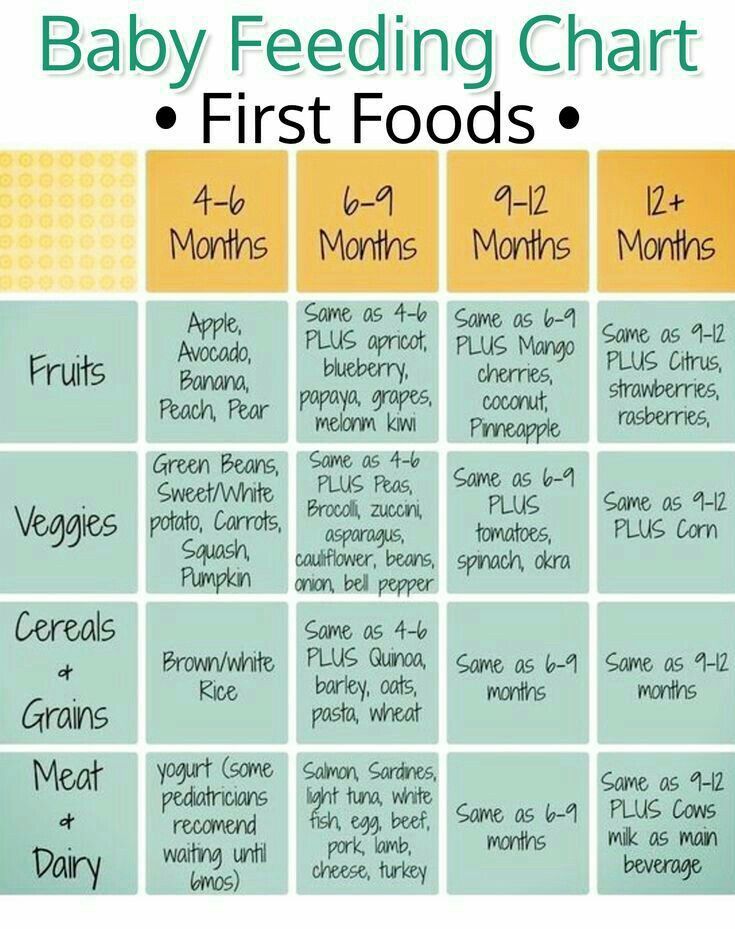 But when the water boils for the first time, it is advised to drain it. The "primary" broth is too fatty and contains most of the harmful substances that could be in the meat. nine0003
But when the water boils for the first time, it is advised to drain it. The "primary" broth is too fatty and contains most of the harmful substances that could be in the meat. nine0003
You can already add some greens to the soup: dill, parsley. The leaves must first be finely chopped.
It makes sense to add vegetable and butter only to ready meals. Heat treatment deprives them of nutritional value.
Every day you have to cook anew. Alas, it is impossible to store dishes for the baby until the next day, otherwise they lose their nutritional value.
— share with your friends!
Read more
- Menu for a 9-month-old baby: a list of allowed foods and recipes for every day
- Menu for a 1 year old child: a detailed guide for parents
- 8 month old baby menu: new foods and rules
Diet for a child aged 9-12 months
By 9 months the main complementary foods have already been introduced, so the expansion of the child's diet continues.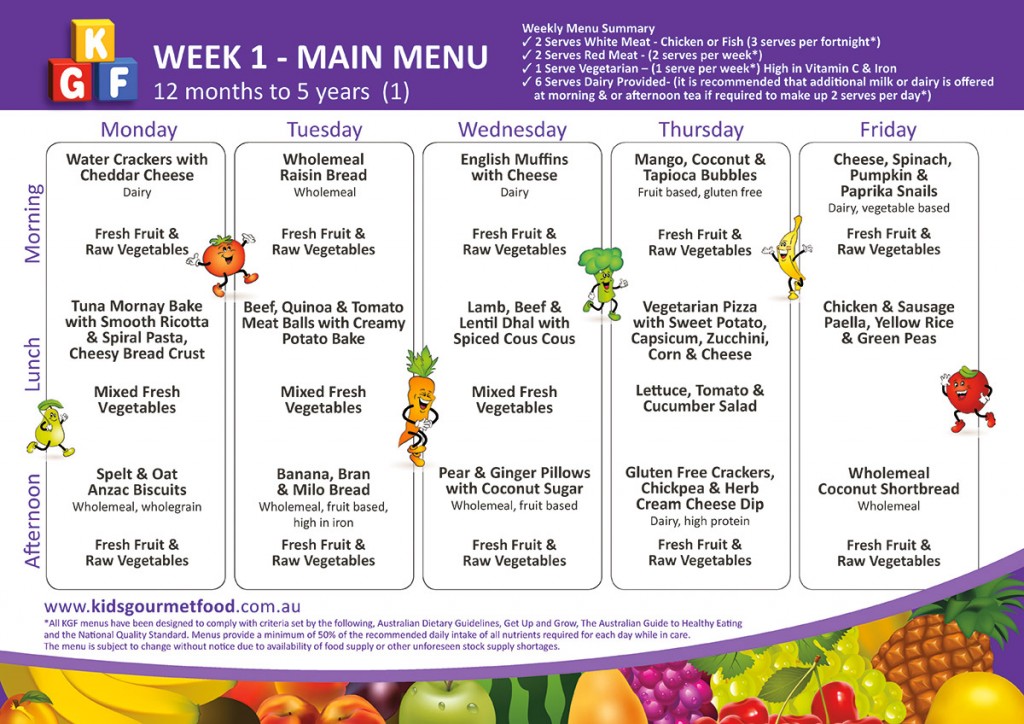 It is important to know that at this age the consistency of the products should change from homogenized to finely and coarsely ground. nine0125 A meat dish for an older child can be offered in the form of meatballs, which diversifies the child's diet and stimulates the formation of chewing skills. Canned meat industrial production for children over 8 months. - coarsely chopped, spices and spices (white pepper, celery, parsley, dill, onion, basil, thyme) can be added to them.
It is important to know that at this age the consistency of the products should change from homogenized to finely and coarsely ground. nine0125 A meat dish for an older child can be offered in the form of meatballs, which diversifies the child's diet and stimulates the formation of chewing skills. Canned meat industrial production for children over 8 months. - coarsely chopped, spices and spices (white pepper, celery, parsley, dill, onion, basil, thyme) can be added to them.
The volume of fish puree increases to 60 g per day by 12 months. Fish is given 2 times a week boiled without broth (instead of meat).
At this age, children's pasta can be offered to the child. nine0003
The number of children's biscuits and crackers is increased up to 10-15 g per day (2-3 biscuits).
By the year it is useful to add finely chopped fresh garden greens (dill, parsley) to various dishes, which significantly enriches the diet with vitamins and minerals.
Sample diet for a 12 month old child:
| breakfast 8 hours | Dairy-free or milk porridge* Butter Boiled egg yolk Fruit puree | 150-200 g about 1 tsp.  1/2 pcs 50 g |
| lunch 12 noon | Vegetable puree Vegetable oil Meat puree (meatballs) or fish Bread/crust Compote | 180 g |
| afternoon tea 4 pm | Breast milk (kefir or yogurt)** Cottage cheese Fruit puree Baby biscuits | 100 g 50 g 50-70 g 2 pcs |
| dinner 20 hours | Vegetables or porridge** Meat puree Vegetable oil Fruit juice | 180 g 20 g 1/2 tsp. 50 ml |
| at bedtime 11 p.m. | Breast milk (DMS)*** | 200 ml |
* - dairy-free porridge should be diluted with breast milk or infant formula that the child receives.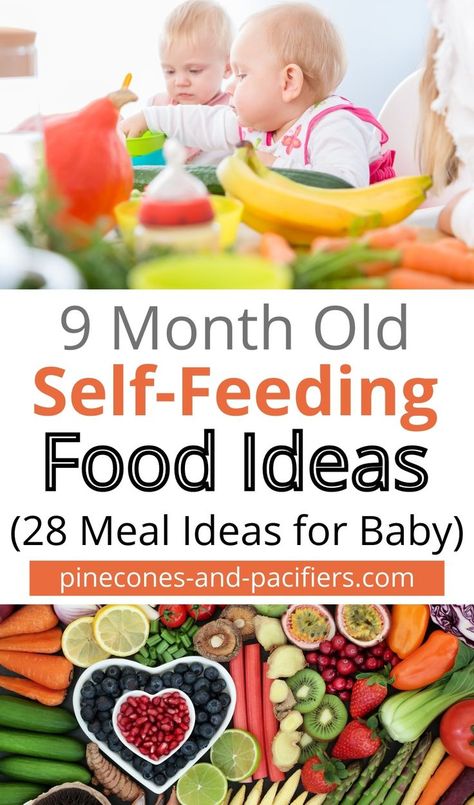 Milk porridge is diluted with water. nine0125 ** — daily volume of kefir or yogurt can be up to 200 ml,
Milk porridge is diluted with water. nine0125 ** — daily volume of kefir or yogurt can be up to 200 ml,
*** — baby milk formula
Approximate diet of a 12-month-old child with an allergy to cow's milk proteins:
| breakfast 4 8 hours 5 | Dairy-free porridge* Vegetable oil Fruit puree | 150-200 g about 1 tsp. 50 g |
| lunch 12 noon | Vegetable puree Vegetable oil Meat puree/meatball Bread/rust Compote | 180 g about 1/2 tsp. 50-70 g 10 g 50 ml |
| afternoon tea 4 pm | Breast milk or formula for infants with cow's milk protein intolerance Fruit puree Rusk | 150-180 ml |
| dinner 20 hours | Vegetables or dairy-free porridge** Vegetable oil Meat puree Fruit juice | 180 g about 1/2 tsp. 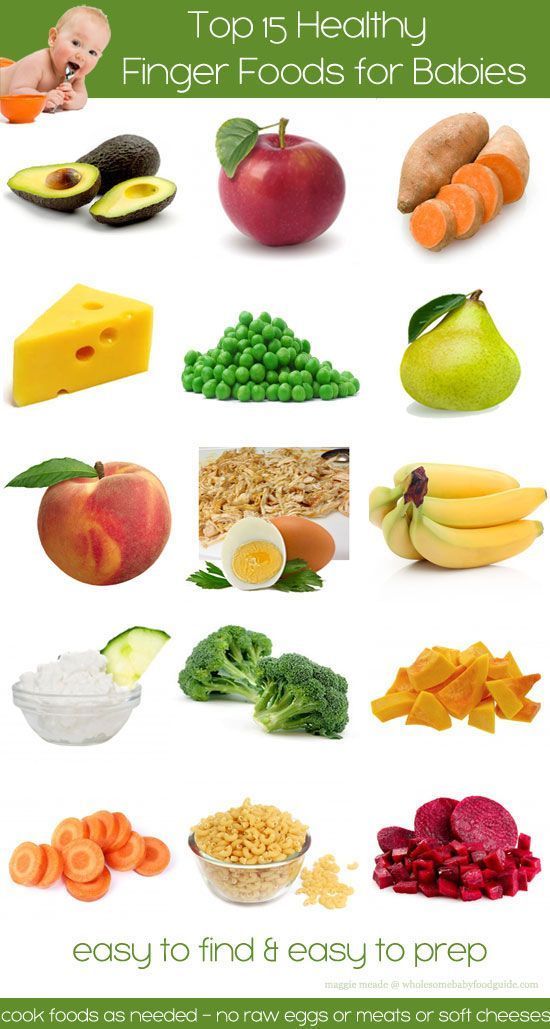 |


